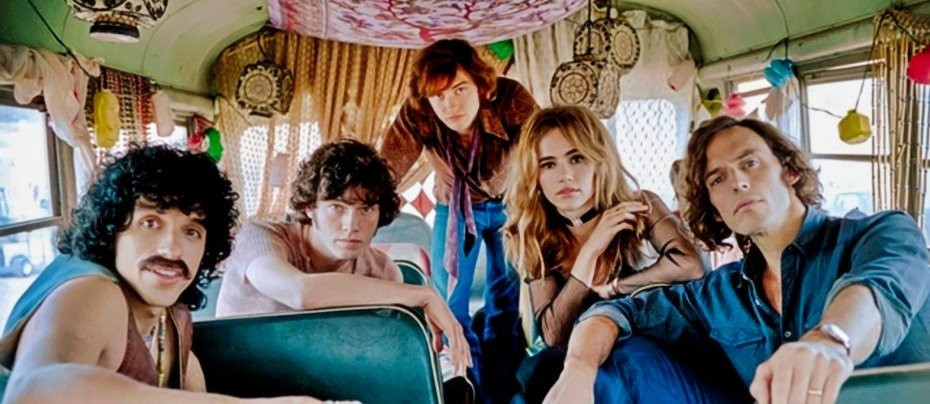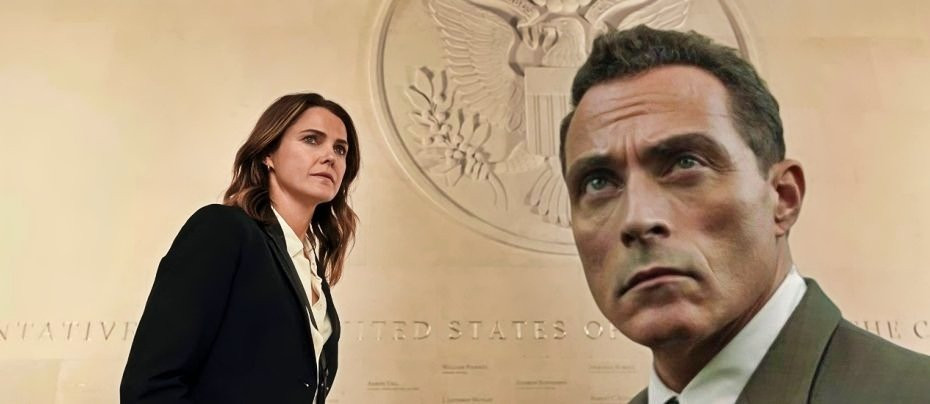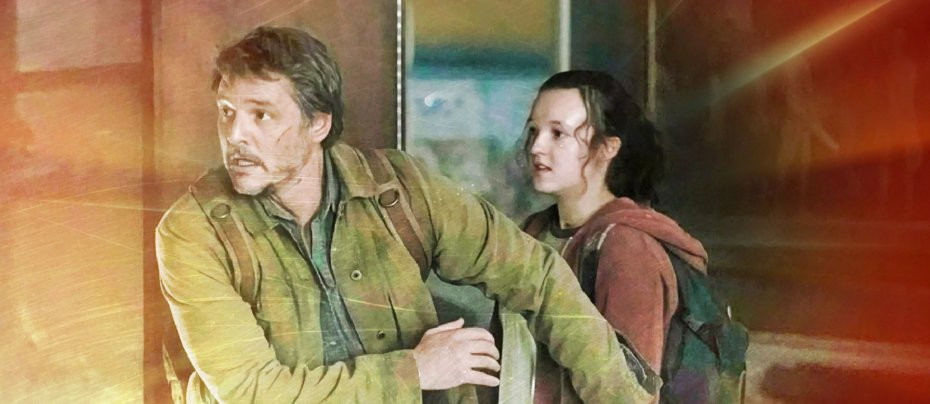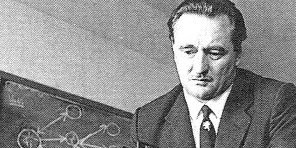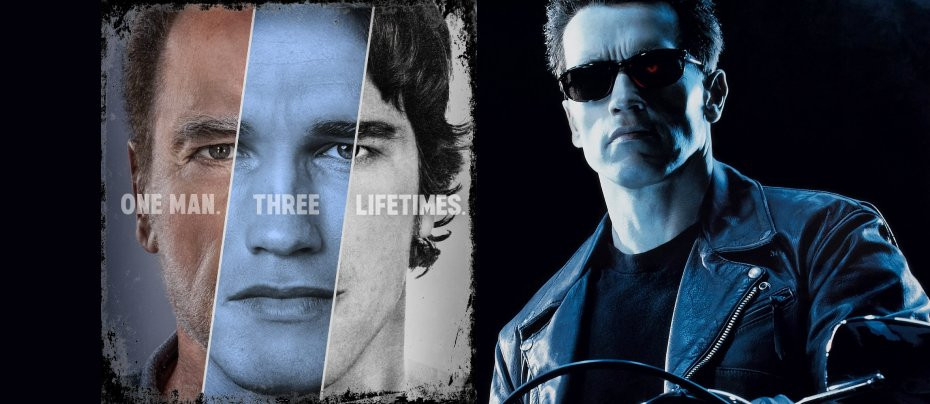
Arnold
2023 - United States“It is very hard to resist Arnold's charm, even when we know we are being manipulated”
‘Arnold’ reviewed by John Winterson Richards
It may be difficult for younger people to grasp how huge Arnold Schwarzenegger was - in every sense - back in the 1980s. There was really no one like him before and there has been no one Iike him since. It was not just that he was the star of several very successful feature films. A number of actors can make that claim, but Arnold was no actor - as many critics pointed out, and Arnold himself would be the first to admit. Arnold was Arnold. So when Netflix produced a three-part documentary and simply put his Christian name as the title, they knew no one would ask who the Arnold in Arnold might be.
When you bought a ticket to see a Schwarzenegger film, you were not only paying to see him play a character. You were buying into Arnold the Personality, Arnold the Brand, above all Arnold the Story. Arnold presents us with little more than the latest iteration of that Story. It was already well known when Conan the Barbarian made him a star in 1982. The Story is of the young man from a very strict home in a small town in Austria who came to California with no money and a thick foreign accent, and fell in love with the place. The official version is that he set himself the objectives of becoming a bodybuilding champion, then a self-made property millionaire, and then a film star, all of which he achieved through hard work and self-belief, and then married "a Kennedy" and became Governor.
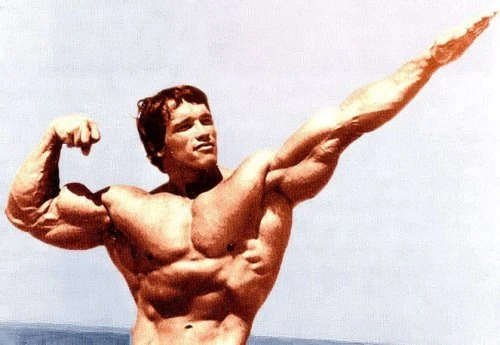
It was the classic American success story, straight out of a Hollywood script, or perhaps Ben Franklin's Autobiography, all the more American because Schwarzenegger was an immigrant. It came along just when it was needed most, as America under Ronald Reagan began to recover its self-confidence after Vietnam, Watergate, and the turmoil of the Sixties and Seventies. Arnold, therefore, became not only the living personification of the American Dream but of the whole decade of the Eighties. He was brash and openly, unapologetically ambitious.
As Schwarzenegger observes shrewdly in Arnold, the defining leading men of the Seventies were highly skilled technical actors like Dustin Hoffman and Robert De Niro, who played ambiguous, often unheroic characters. Schwarzenegger basically had to invent, or reinvent, a different type of film star, "the action hero." Referencing traditional concepts of heroism but putting them into hyperdrive, he was basically John Wayne on steroids.
Schwarzenegger, and his competitors and imitators, most notably Sylvester Stallone, were just what American and global audiences had been wanting for some time. They went from being amusingly kitsch to mainstream with astonishing speed. They were every secret male fantasy right there in the open and on the big screen.
However, the problem with being in fashion is that fashion changes. By the Nineties, in a supposedly "kinder, gentler America," there was greater interest in more reflective "art house" films and a growth in the low-budget independent sector that set itself in direct opposition to the gaudy blockbusters by then associated with Schwarzenegger. He could still generate grosses that justified his massive fees, but there were more misses among the hits, and he was beginning to look a bit creaky.
He was therefore wise to go into politics when he did. One suspects he might have preferred to stay there, or at least not return to acting after his term as Governor of California ended, but for a very expensive divorce.
His career since his return to film has been mediocre. Some of his choices smack of desperation. Others have been good films, and his performances well received, but the box office returns, even when respectable, are at a much lower level, adjusted for inflation, than they were when a new Schwarzenegger film was a real event. There is no denying that his success in his prime was due to his physicality rather than his acting skills, and, with the physicality diminished, the acting skills, while much improved over the years, are never going to be a big draw in themselves. He has, to a very great extent, been trading on the nostalgia of the middle aged, a real-life legacy character.
Back in the Eighties, it might have been considered the final humiliation for a feature film star of his standing to take the leading role in a television show. It would be cheapening the Brand by making it too accessible. However, times have changed and most of the big names, including Stallone, Hoffman, DeNiro, Al Pacino, and Sir Anthony Hopkins have taken "streaming" money, which is somehow still seen as not as bad as network money.
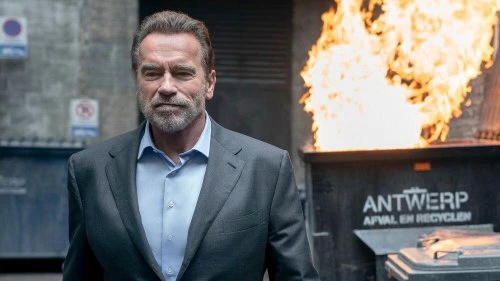
Schwarzenegger's decision to do FUBAR, a comedy spy thriller which obviously owes a lot to his cinematic hit True Lies, has turned out to be a shrewd move. It has great viewership figures and a second season has been commissioned, but a discussion of FUBAR itself is perhaps for another day.
What matters here is his even shrewder decision to take part in the superbly produced, surprisingly intimate documentary that was put out by Netflix at the same time as FUBAR - possibly because they thought younger audiences might have needed telling what was so special about the old guy in their latest project.
The documentary is in fact far more compelling than the comedy spy thriller. It succeeds on two levels: it updates the familiar Arnold Story, which is always worth the telling, and it also functions as a sort of "motivational video."
Its three parts reflect the three main phases of his deliberately structured life, his rise as a bodybuilder, his growing success in cinema, and his political career. Curiously it does not mention one thing that was always part of the Story when it was being told in the Eighties, his self-education. He got credits for attending extension courses at Santa Monica College and UCLA, itself another very American thing to do, and later parlayed them, together with more credits for "life experience" and a year of distance learning with a provincial University in Wisconsin, into a degree in business administration and marketing, itself a very Arnold thing to do.
This is significant because, more than a bodybuilder, an actor, or a politician, the one thing Arnold Schwarzenegger has always been is a salesman. It is the one constant throughout his career. Whether selling bricklaying services, mail order body building products, real estate, restaurants, his latest film, or his candidature for elected office, his commitment to the sale is total. As he says in Arnold, while many actors see selling a film as an unpleasant obligation and try to get out of it, he sees marketing as half of his work as a star. He always respects the product, even when selling a bad film, because he understands that in the end the product is always Arnold himself.
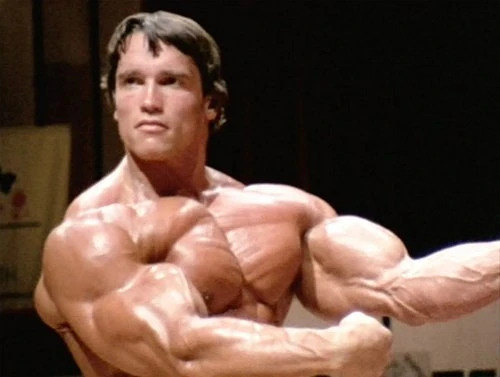
The documentary itself must be viewed in this context. It is a three-hour sales video for Brand Arnold, and as such it is a masterpiece of its kind - much like the 1977 documentary Pumping Iron which performed a similar function in his bodybuilding days (the film was not intended to do that but Arnold made sure it did).
Schwarzenegger applies to himself the quote attributed to Nietzsche that appears at the beginning of Conan the Barbarian and implies that, like Conan, he spent time on the Wheel of Pain before becoming a King by his own hand. The familiar Arnold Story is revised for the 21st Century to suggest that he had what might today be called an abusive childhood. We must be careful here. Arnold himself acknowledges that he owes his ferocious work ethic, his self-discipline, his competitiveness, and his desire to be useful to his parents, but what forced him to become stronger may have contributed to his more sensitive brother's premature death. It also has to be noted that he says his father could be kind and Arnold's desire to please his mother, whom he loved, helped drive him to success. They also seem to be have been very supportive of his various activities. No Austrian Catholic in the 1950s could have been entirely happy when their son's bedroom wall was covered with photographs of male bodybuilders rather than girls.
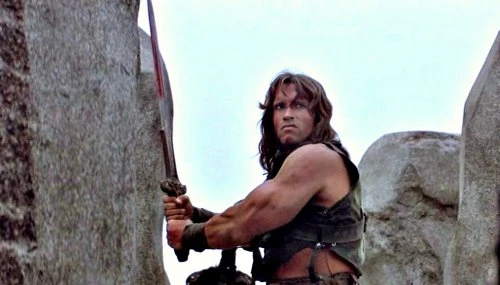
This leads to another point that younger people today, when the image of near-naked, muscular men covered in oil has certain connotations, might not appreciate. Most people did not even think in those terms back then. Bodybuilding was marketed primarily as a way of picking up girls. Honestly.
The period of transition from bodybuilder to film star is possibly the most interesting of Arnold's life and it could have done with an extra episode of the documentary in its own right. It took him twelve years to become an overnight success. He was not idle. It was during this time that he founded successful bricklaying, mail order, and property renovation businesses, so that he became financially independent and then a millionaire. This gave him confidence and options, knowing he was not desperate for whatever Hollywood might offer him.
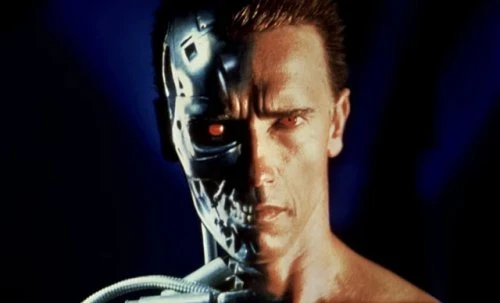
He also worked on his acting. This is not appreciated as much as he deserves. His earliest performances are so bad that it would actually be quite difficult to mock them. He got a lot better, so that by the time he got to play Conan, admittedly a role that demanded a limited range of emotions, he was able to do exactly what the part demanded. It seemed he had found the character he was born to play and he played it again in two similar films, even if Conan's name was changed in the second. Meanwhile, in 1984, he extended himself to another part that seemed to make a virtue of his limitations, as a robotic killing machine in The Terminator.
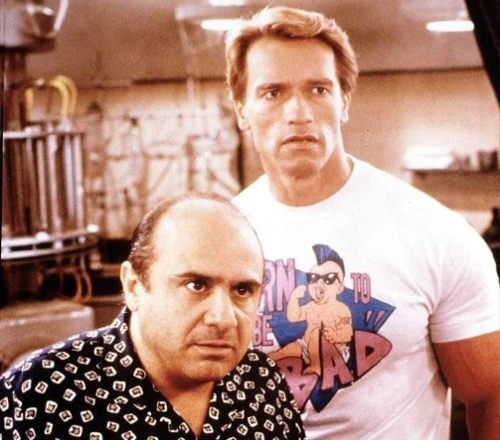
In his subsequent films he pushed himself a little more. He began to play more human characters, even if they were always of a type. He was marketing a very definite persona, as John Wayne and Clint Eastwood had done, but, like them, he began to show increasing range within that persona. In 1988 he demonstrated in Twins that he had grasped the basic principle of good comedy, which is not to try too hard to be funny. In 1991, within the parameters of his robotic signature character in Terminator 2, he pulled off the incredible feat of evoking a strong emotional response from audiences - grown men have been known to clear their throats at his farewell scene. More than that, he showed how he was capable of learning, not least from his own failures.
This last skill was particularly important when he went into politics. He became Governor through a loophole in the chaotic California constitution that really ought to be closed, only to find himself completely out of his depth, not least because that same chaotic constitution makes California essentially ungovernable. Of course, to admit that would be a fatal sign of weakness, so instead he "pivoted" from radical reformer to pragmatic dealmaker, building a new image as a born-again environmentalist, a conservative conservationist.
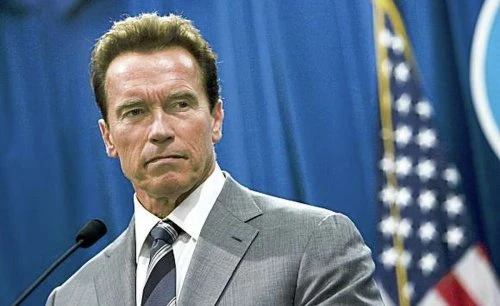
At this point the documentary becomes something of a party-political broadcast. We need to remind ourselves that this is Brand Arnold after all, so we get Arnold's narrative and his current narrative at that, which is not necessarily the same thing as his narrative at the time.
For Arnold remains a driven man. There is still one thing he has not achieved. It is an ambition so big and so apparently impossible that it is little more than a dream, but Arnold's apparently impossible dreams have come true before.
Arnold Schwarzenegger wants to be President of the United States. Were it not for a constitutional prohibition of the foreign born - intended to prevent America becoming a Monarchy - it is not difficult to see how he might have won in 2016 or 2020, or, at the time of writing, how he might win quite easily in 2024.
Knowing that, the constitutional prohibition must be extremely frustrating for him. Even more frustrating is the knowledge that a campaign to remove that prohibition might have stood a chance if his public image had not been damaged by his messy divorce. Most frustrating of all must be the fact that he has only himself to blame.
This is where Arnold's whole philosophy, a combination of the very American "Power of Positive Thinking" and the very Germanic "Will to Power," rather turns against him. Believing passionately in yourself leaves you nowhere to hide when you turn out to be not who you wanted to be. Greatly to his credit, Arnold does not try. Nor does he blame anyone else or take refuge in self-pity. He becomes the true Wagnerian tragic hero, destroyed by his own flaws but still heroic.
He is also at his best when he admits that is not a "self-made" man at all because others have helped him on his journey. A moving tribute to some of the friends he has lost is one of his most likeable moments - along with the times when he is filmed treating his pets with what appears to be real affection: there is something delightfully incongruous about this musclebound giant cuddling his miniature pony and donkey, and his dogs, including a sweet little Yorkshire terrier.
It is very hard to resist Arnold's charm, even when we know we are being manipulated - not least because Arnold himself is completely open about it. One is left with the impression that it would be great to spend time with him and be his friend, but one would not want to be him.
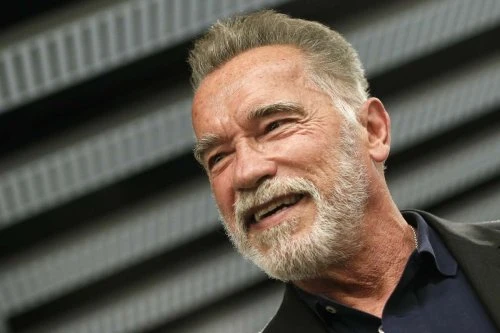
This rather undermines the "motivational video" aspect of Arnold. Even if his philosophy of keeping moving and being useful rather than worrying about how you are feeling was a recipe for success, is it a recipe for happiness? One finds oneself caring enough about Arnold to worry what might happen to him if he is ever unable to keep moving and be useful. One fears all those ignored feelings will be waiting for him.
Indeed, is it even a recipe for success? Arnold's own story, the real story, not the Story he gives us, suggests otherwise. He is right to take pride in his hard work, his drive, and his enterprise, but there is a curious lack of reflection in Arnold. Never once does he suggest that other bodybuilders worked just as hard as he did, perhaps harder, but did not win his prizes because they lacked his genetic advantage. Arnold does not really understand Arnold's success. In the end, all Arnold can offer is a lifestyle guide, not a real philosophy. But is an entertaining journey.
Seen this show? How do you rate it?
Seen this show? How do you rate it?
Published on July 2nd, 2023. Written by John Winterson Richards for Television Heaven.


